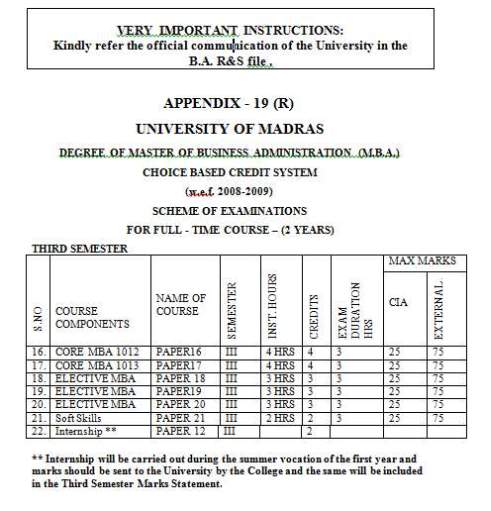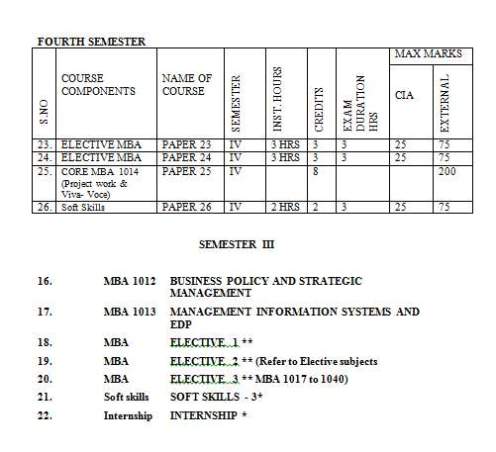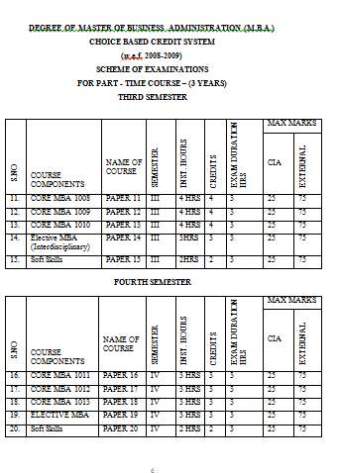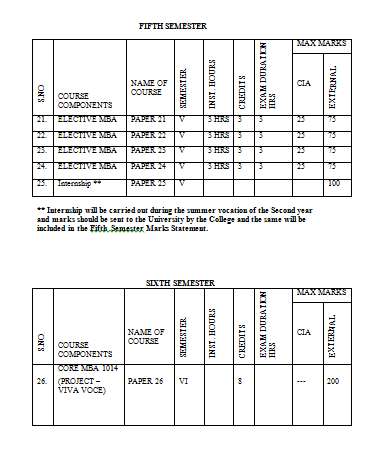|
#2
3rd November 2015, 10:22 AM
| |||
| |||
| Re: Madras University MBA Training And Development Syllabus
The University of Madras is a public state university in Chennai, Tamil Nadu. It was established in 1857. MBA1033 - Training and Development UNIT – I-Training and Development : An Overview -Learning Process UNIT – II-Trainer”s Role- Need Analysis- Designing a Training Program UNIT – III-Training Techniques : The Lecture Method - Conference Leadership The case Method - Role Plays- Games and Simulations UNIT – IV-Evaluation of Training and Development UNIT – V-Marketing of Training Function References 1 Bewnet, Roger cd Improving Training effectiveness, Aldershot, Gower 1988 2 Buckley R & Caple, Jim, The Theory & Practice of Training, London, Kogan & Page 1995 3 Lynton R Pareek U Training to Development 2nd ed. New Delhi, Vistaar, 1990. 4 Pepper, Allan D, Managing the Training and Development function, Aldershot, Gower, 1984 5 Rae L etc. Hon to Measure Training Effectiveness, Aldershot, Gower, 1986 6 Reid M.A. etc. Training interventions, Managing Employee Development, 3rd ed. London IPM 1992 7 Serge P The Fifth Discipline, The Art and Practice of the learning organization London Century, 1992 For syllabus of other subjects here I am providing you word file so that you can refer it. Syllabus of MBA course of Madras University       UNIT - I Introduction of Human Resources Management: Definition, Importance of Human Resources, Objectives of Human Resources Management, Qualities of a good personnel manager – Evolution and growth of Personnel Management in India. Human Resource Policies: Need, type and scope – Advantage for a written policy -Human Resources policies and work Culture. Human Resources Planning: Long and Short term planning, Job Analysis, Skills inventory, Job Description and Job Specification. UNIT - II Recruitment and selection: Purposes, types and methods of recruitment and selection, Relative merits and demerits of the different methods; Personnel Search, Selection Instruments, Reduction of recruitment costs. Functions of Human Resources Management from Procurement to Separation: Placement, Induction, Transfers, Promotions, Disciplinary actions, Termination of Services: Resignation, Dismissal, Retrenchment and Voluntary Retirement Schemes, Exit Interviews, Prevention of employee turnover. UNIT - III Performance Evaluation: Ranking, rating scales, critical incident method, Removing subjectivity from evaluation, MBO as a method of appraisal, Job evaluation, Criteria for Promotions and job enrichment. Wage and Salary Administration: Meanings, Calculation of Wage, Salary, Perquisites, Compensation Packages, Cost of Living Index and Calculation of Dearness Allowance, Rewards and Incentives: Financial and non-financial incentives, Productivity – linked Bonus, Compensation Criteria. UNIT - IV Employee’s Safety and Health: Preventive approaches including health education, Audit of safety programs and safety training, Work-stress: Causes and Consequences, Stress-Management programs. Personnel Office Management: Functions of the office, correspondence, O & M in personnel departments, Maintenance of Personnel records. UNIT - V Time Management: Importance of Time factor, Time waster, Prioritizing Work Scheduling, Functions of the Time Office, Flexible Work arrangements. UNIT - I Marketing Management Philosophies – What is marketing – The concepts of marketing.- E-Marketing UNIT - II Strategic planning – Marketing Management process – Analysis marketing opportunities, selecting target consumers, developing marketing mix. Analysis of macro and micro environment. Marketing Research as an aid to marketing, Marketing Research Process – Sales forecasting – Techniques. UNIT - III Buyer behaviour; influencing factors on Consumer Behaviour – Buying situation – Buying decision process – Industrial buyer behaviour. Market segmentation, targeting and positioning; Competitive Marketing Strategies. UNIT - IV Product policies – consumer and industrial product decisions, branding, packaging and labeling – New product Development and Product life cycle strategies. Pricing – Pricing strategies and approaches. UNIT - V Distribution – Nature of channels – channel – decision, retailing and wholesaling. Promotions – Advertising scope, designing copy, media selection, Sales promotions strategies. Sales force decisions, Selection, Training, Compensation and Control Consumer protection – Awareness of consumer rights in the market place. Contact details University of Madras Chepauk, Chennai, Tamil Nadu 600005 |